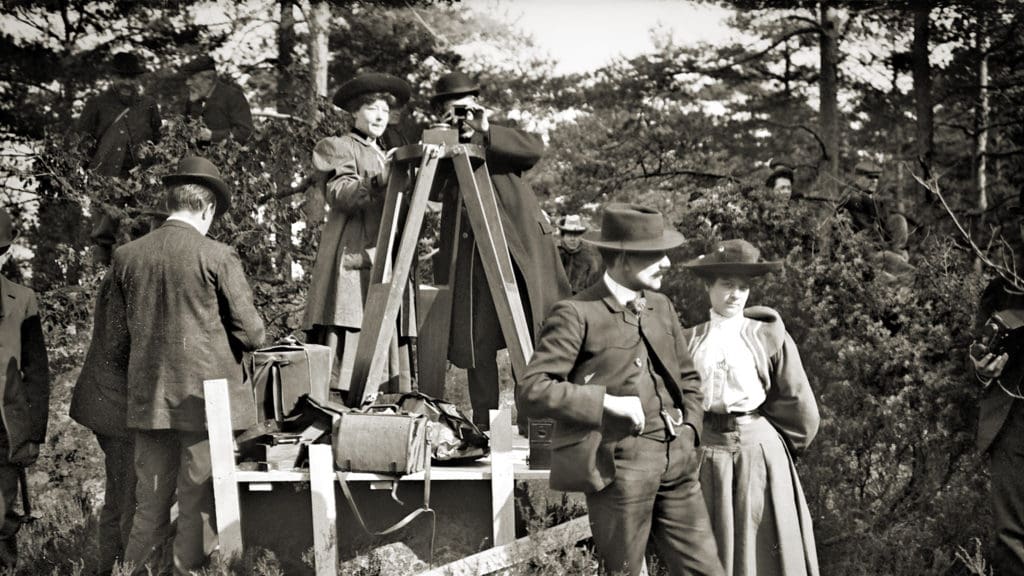
Be Natural: The Untold Story of Alice Guy-Blaché, the new documentary from director and producer Pamela B. Green and narrated by Jodie Foster begins with the question anyone who sits down to watch it probably the asks themselves: have you heard of Alice Guy-Blaché, the French filmmaker who was not only the first female director in history but one of film’s early pioneers? As Green cycles through dozens of interviewees including the likes of Geena Davis and Julie Delpy, the answer is the same, “no.” Right off the bat, Green establishes the mystery of how Guy-Blaché was excluded from film history and by the end of her comprehensive–borderline mind-numbing–film, she answers that question.
However, before she can do that, she must give us some backstory. Born to French parents and raised mostly in Chile and Switzerland, Guy-Blaché started as film pioneer Léon Gaumont’s secretary. Though the Lumière Brothers, commonly accepted as the inventors of film, gave their first public demonstration of their cinématograph in 1895, a few months before that, Guy-Blache and Gaumont attended a private showcase of the new technology. Convinced that as film scholar Anthony Slide puts it, “there was more to the cinema than just a stock shot,” Guy-Blaché began making short narrative films with the now lost The Cabbage Fairy and went on to pioneer numerous film techniques, found a studio in Fort Lee, New Jersey’s nascent version of the Hollywood studio system and make over 1,000 films over her career.
As should be fairly obvious, that’s a lot of information at once and while Green spends the rest of the film teasing out the details, the relentless pace set at the beginning continues throughout and will leave many viewers feeling overwhelmed. That said, part of the reason Green’s film is so stuffed is because she has clearly done a staggering amount of research. Every few seconds, she seems to jump to a new archive in search of more of Guy-Blaché’s films, some of which–like the subversive, hilarious Sticky Woman–we then see almost in full. As Green globe trots in search of information, we see her bounce from Southern California to DC and back again only to go on to New Jersey and France after. There and elsewhere, Green feels like part filmmaker, part detective and watching her chase down leads using the slightest clues keeps what are usually the most boring parts of research cinematically interesting.
Perhaps the best example are the scenes where she tracks down the granddaughters of a man who she thinks may have been a cameraman at Guy-Blaché’s Solax studio in Fort Lee. As they talk over Skype, we see that same map animation with a dashed line connecting Green and the woman, but as the woman adds one sister after another to the call, the lines multiply, turning a sequence that could be boring into comedy. Still, while Green manages to present that scene and others in unexpected ways, seeing the work she has to do to paint a full picture of Guy-Blaché’s life, it’s hard not to wish that she’d decided to relay it in a more serialized format that would give both her methods and her subject more room to breathe.
Still, while the central mystery of how Guy-Blaché was essentially left out of film history seems deserving of a true-crime series, the culprit is admittedly exactly what you’d expect. Men wrote the history of film and thanks to good old-fashioned sexism, they left her out of it. Because of that, it’s easy to forgive Green for trying to fit so much information into a mere 103 minutes. She’s not just telling Alice Guy-Blaché’s story, she’s trying to rewrite nearly a century of male-written film history that strove to erase Guy-Blaché’s contribution to the art form. And while that story could have filled an hours-long miniseries, Green’s work is powerful and important nonetheless. Even if we don’t retain every moment of Guy-Blaché’s story, Green achieves something even more important: nobody can leave Be Natural without wanting to see more of Guy-Blaché’s work.

